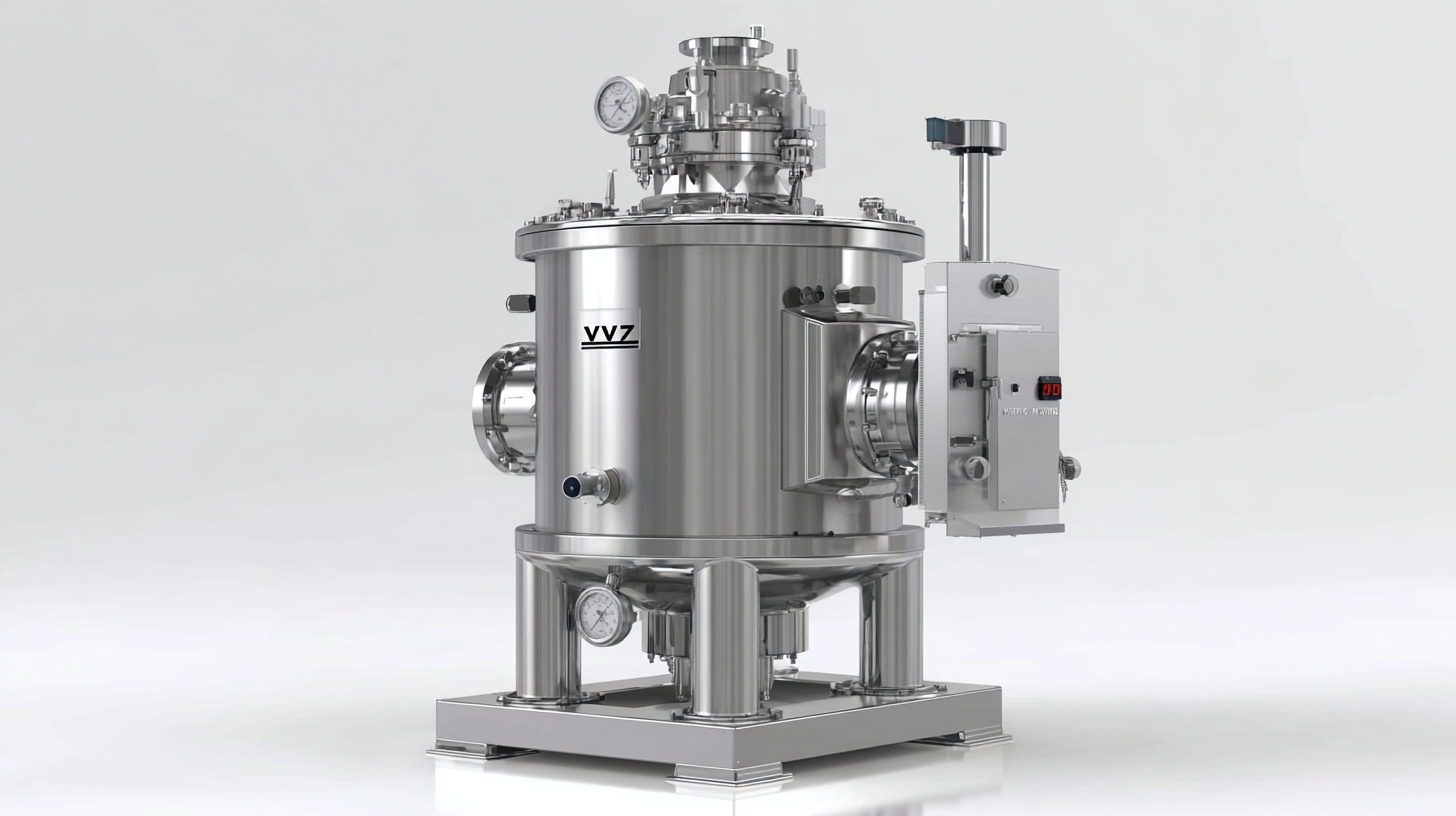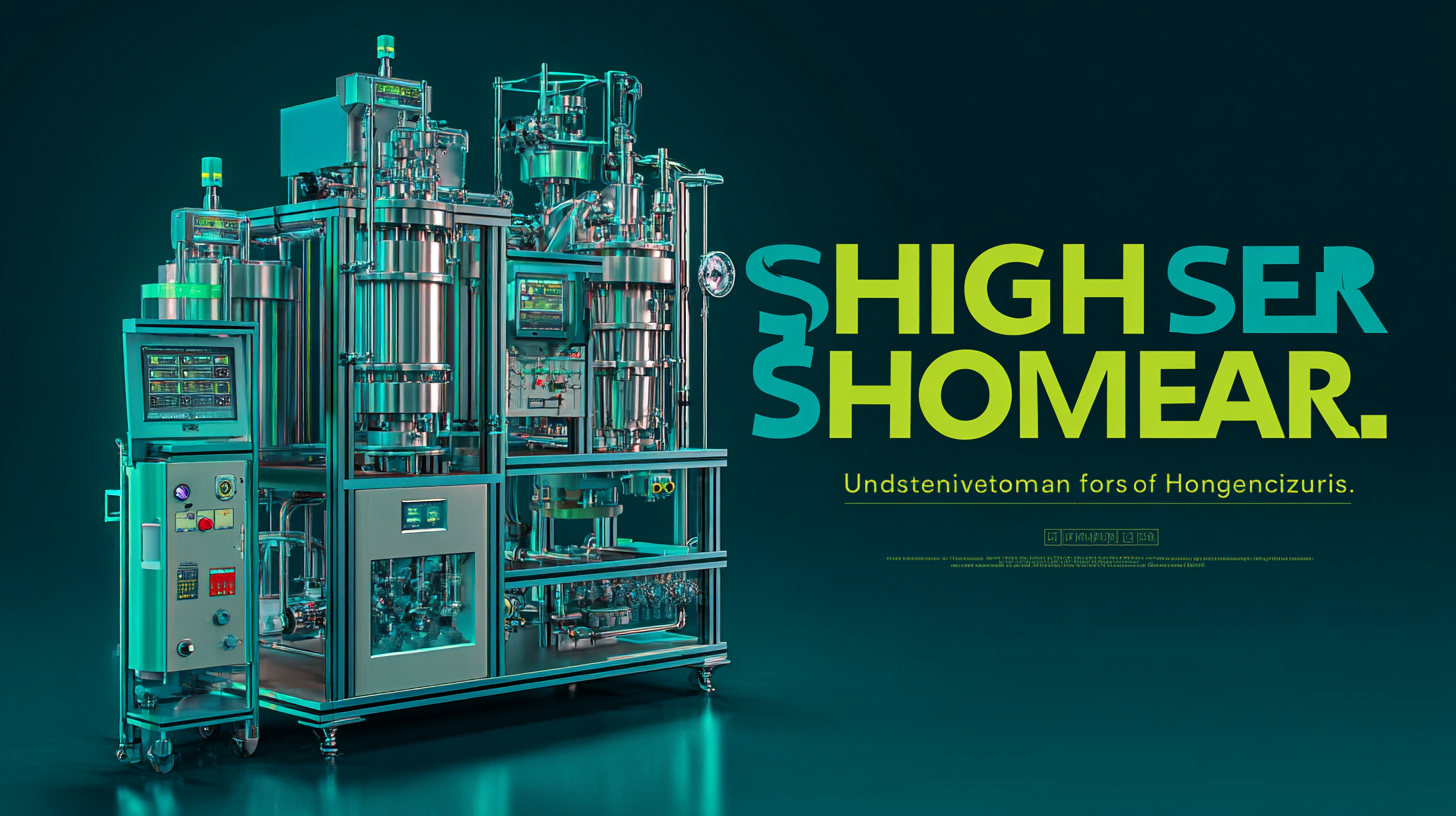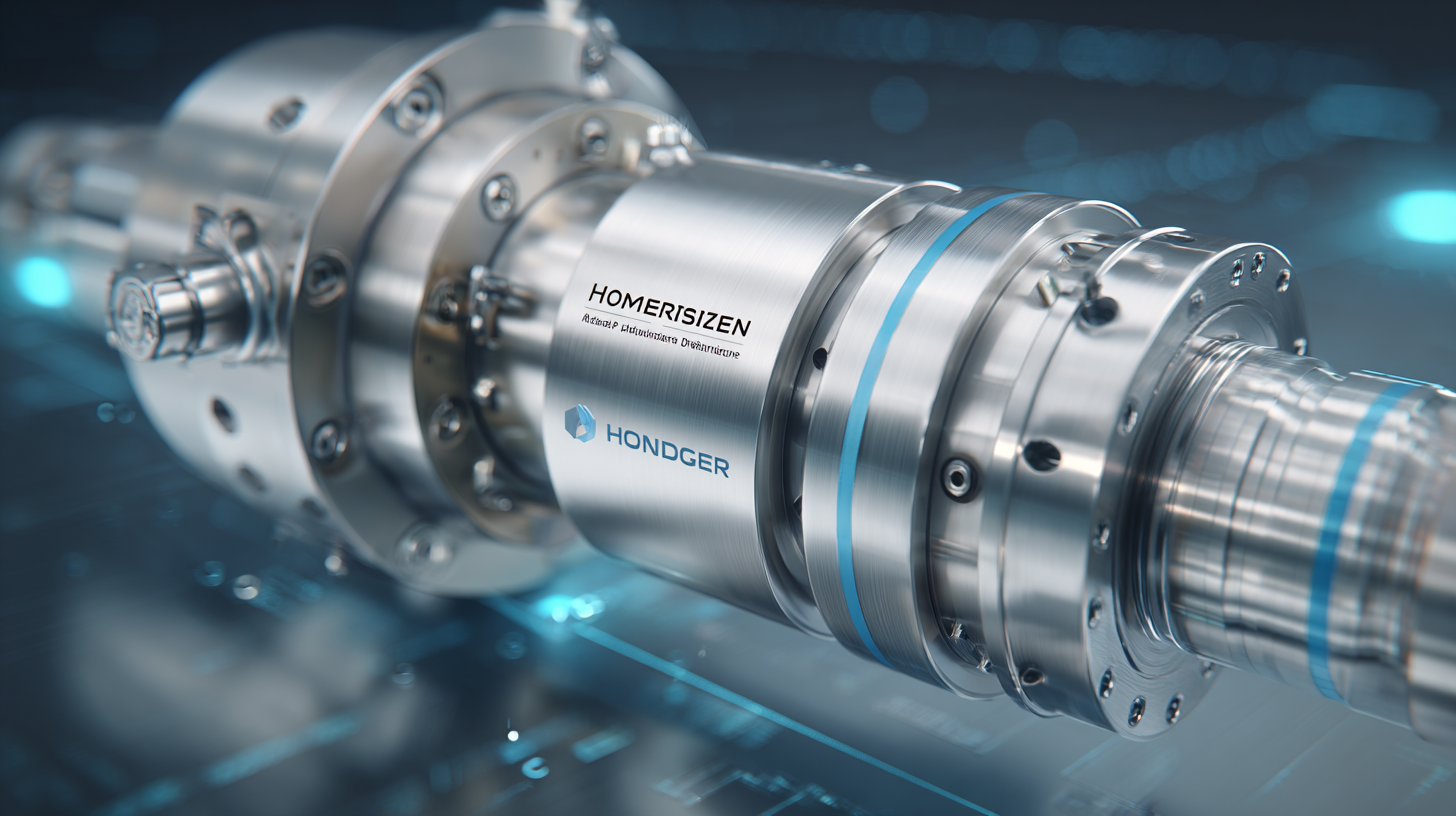
In today's rapidly evolving industrial landscape, the demand for superior quality and consistency in product formulations has never been higher. At the forefront of this transformation is the High Shear Homogenizer, a cutting-edge technology that has revolutionized various sectors worldwide. From food and beverage to pharmaceuticals and cosmetics, these machines are essential for achieving uniformity and stability in emulsions and suspensions. The phrase "中国制造,品质升级,畅销全球" encapsulates the essence of modern manufacturing, as we explore five innovative applications of the High Shear Homogenizer that not only enhance product quality but also drive global competitiveness. As we delve into each application, we'll uncover how this indispensable tool is enabling industries to elevate their standards and fulfill the diverse needs of consumers across the globe.

High shear homogenizers play a crucial role in modern industries, particularly in the food sector. They utilize high-pressure homogenization (HPH) to enhance the stability and shelf-life of liquid foods without the need for thermal processing. This innovative technology ensures the preservation of essential nutrients and flavors while significantly reducing microbial loads. The non-thermal nature of HPH maintains the quality of raw ingredients, offering a safe and effective solution for food manufacturers looking to meet consumer demands for fresher, cleaner products.
Moreover, the concept of process intensification (PI) is gaining traction in food processing, streamlining operations and enhancing resource efficiency. High shear homogenizers are integral to this approach, allowing for more consistent and productive manufacturing processes. By optimizing particle size reduction and improving emulsification, these homogenizers contribute to better texture and mouthfeel in food products, setting a new standard in quality and sustainability. As industries continue to evolve, the significance of high shear homogenizers in achieving innovative processing methods cannot be overstated.
When searching for a reliable high shear homogenizer supplier, it’s essential to evaluate several key characteristics that can ensure you receive a top-quality product and service. First and foremost, a supplier's reputation in the industry speaks volumes. Look for providers with positive customer reviews, testimonials, and a solid track record of delivering high-performance homogenizers catering to diverse industrial applications.
Furthermore, technological innovation is a hallmark of a dependable supplier. Companies that invest in research and development tend to offer cutting-edge homogenizers equipped with features that enhance efficiency and product quality. Additionally, comprehensive customer support, including technical guidance and maintenance services, is crucial. A supplier that offers robust after-sales support demonstrates a commitment to client satisfaction and can help optimize the use of their equipment in your operations.
Lastly, consider the flexibility of the supplier in terms of customization options. Industries vary in their specific homogenization needs; thus, a supplier capable of tailoring solutions to meet unique requirements can provide a significant advantage. This personalized approach not only enhances the effectiveness of the equipment but also fosters strong business relationships built on trust and understanding.
When evaluating high shear homogenizer manufacturers, it is crucial to consider several key strategies that can significantly impact product quality and efficiency. One of the primary factors is the technology used by different manufacturers. According to a report from MarketsandMarkets, the global homogenizers market is projected to reach $1.7 billion by 2025, highlighting the increasing demand for advanced homogenization technologies across various industries such as food and beverage, pharmaceuticals, and cosmetics. Manufacturers utilizing cutting-edge technologies, like the latest high shear homogenization techniques, can ensure improved particle size reduction and emulsification, leading to higher product consistency.
Additionally, understanding a manufacturer's experience and reputation in the industry is essential. Recent surveys indicated that nearly 70% of food and beverage companies prioritize suppliers with proven track records and robust after-sales support. Engaging with past clients for testimonials and performance data can offer valuable insights. Moreover, assessing the manufacturer’s quality control measures, which are often verified through certifications such as ISO 9001, can further inform your selection process. By employing these strategies, businesses can ensure they partner with high shear homogenizer manufacturers that align with their operational needs and quality standards.
In the food and beverage industries, high shear homogenizers have emerged as game-changers, enhancing the texture, stability, and overall quality of products. These advanced machines employ intense mechanical forces to create uniform mixtures, making them ideal for emulsifying oils in dressings, producing smooth textures in sauces, and improving the dispersion of particles in beverages. The growing trend of non-thermal processing further emphasizes the importance of homogenizers, as they allow for effective preservation of liquid foods without compromising taste or nutritional value.

Recent innovations in the application of homogenizers extend to the extraction of proteins from algae, a burgeoning trend in alternative protein sources. By utilizing high-pressure homogenization techniques, manufacturers can significantly enhance the efficiency and yield of algal protein extraction, catering to the increasing demand for sustainable food applications. Additionally, the encapsulation of biosurfactants using advanced homogenization methods contributes to the development of innovative food products with enhanced quality and shelf life. These advancements reflect a shift towards more sustainable and health-conscious food production practices in a rapidly evolving global market.
High shear homogenization technology is at the forefront of numerous industries, revolutionizing the way products are formulated and manufactured. As global industries continue to evolve, the demand for more efficient and effective homogenization processes is rising. This trend is largely driven by innovations that focus on enhancing product quality, reducing processing time, and improving energy efficiency. The future of high shear homogenization is characterized by the development of smarter, more adaptable machines capable of meeting the diverse demands of various applications, from pharmaceuticals to food production.

One notable trend is the integration of automation and data analytics into high shear homogenizers. These advancements enable precise control over the homogenization process, ensuring consistent results and reducing human error. Additionally, the incorporation of IoT technology allows for real-time monitoring and adjustments, leading to increased operational efficiency. As industries prioritize sustainability, high shear homogenizers are also being designed to minimize waste and energy consumption, aligning with global goals for greener manufacturing practices. The ongoing innovation in this field promises to unlock new applications and enhance existing processes, thus cementing high shear homogenization as a critical technology for the future.
